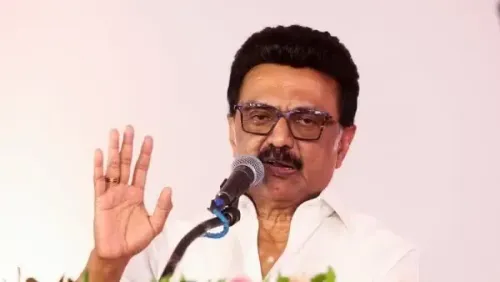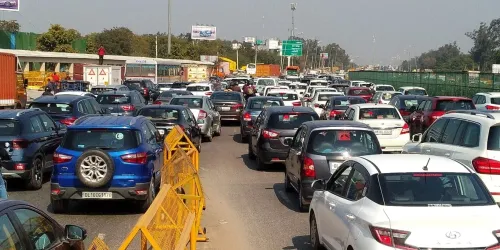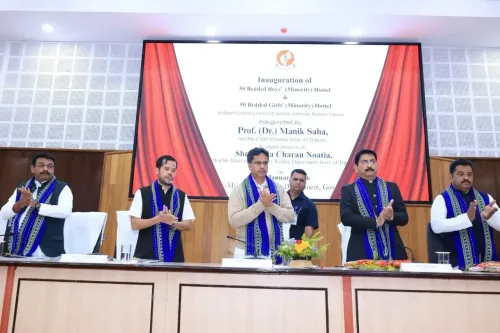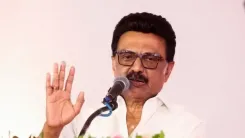How is MMRDA's new manpower policy speeding up Mumbai metro corridors?
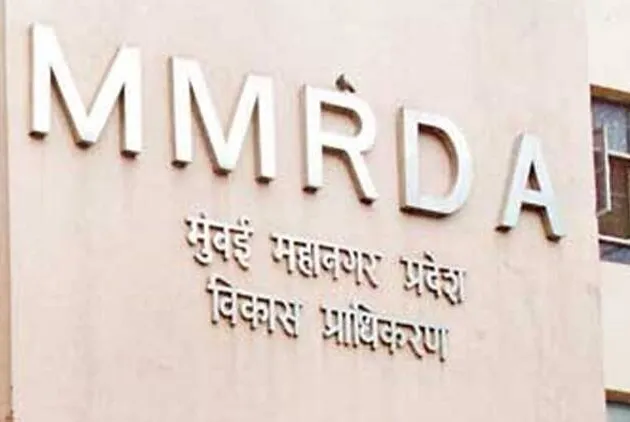
Synopsis
Key Takeaways
- Accountability: Contractors are held responsible for workforce shortfalls.
- Penalties: Up to Rs 2 lakh per day for severe shortfalls.
- Regular Audits: Compliance will be monitored through periodic reviews.
- Timely Completion: Aim to finish over 150 km of metro lines on schedule.
- Public Trust: Building trust with citizens through effective execution.
Mumbai, June 18 (NationPress) The Mumbai Metropolitan Region Development Authority (MMRDA) has rolled out a new manpower mobilization policy aimed at expediting the completion of more than 150 kilometers of metro lines on schedule.
The policy ensures that contractors are held responsible for any delays due to insufficient workforce. It emphasizes that this is not merely about imposing fines; it’s about instilling discipline, commitment, and fulfilling obligations to over 20 million residents of the Mumbai Metropolitan Region, as stated in the release.
Under this new policy, a manpower shortfall of 25% to 50% will incur a daily penalty of Rs 1 lakh. If the shortfall exceeds 50%, the penalty escalates to Rs 2 lakh per day.
Moreover, any missed project Key Dates (KDs) will lead to further penalties as specified in the contract.
“No prior notice. No exceptions. The message is unmistakable: Metro delivery timelines are non-negotiable. This structured approach by MMRDA aims to ensure contractors are accountable and that metro projects are delivered on time,” the release noted.
Regular site audits and manpower evaluations will now be standard practice. The General Consultant and metro engineers will closely monitor adherence to these protocols.
“As MMRDA expands the metro network in Mumbai with speed and accuracy, this policy underscores a fundamental principle: execution is paramount,” the release emphasized.
Chief Minister Devendra Fadnavis stated, “We’re not merely constructing metro lines; we’re building trust. This policy is not punitive; it is progressive. It guarantees that intent aligns with execution. The world observes how India develops its cities, and Mumbai must set the standard.”
The Deputy Chief Minister and MMRDA Chairman Eknath Shinde remarked, “This initiative is about maintaining momentum. MMRDA is operating at an unprecedented scale, leaving no room for compromise. We owe it to our commuters to remain on track, both literally and figuratively. If enforcing stringent measures is necessary, then that is what we must do. Time lost means opportunity lost.”
The Metropolitan Commissioner, Sanjay Mukherjee, noted that MMRDA has appointed dedicated leaders for each metro package, which has significantly improved site progress.
“This new policy is the logical next step. We aim to commission multiple metro corridors by the end of this year,” he added.


